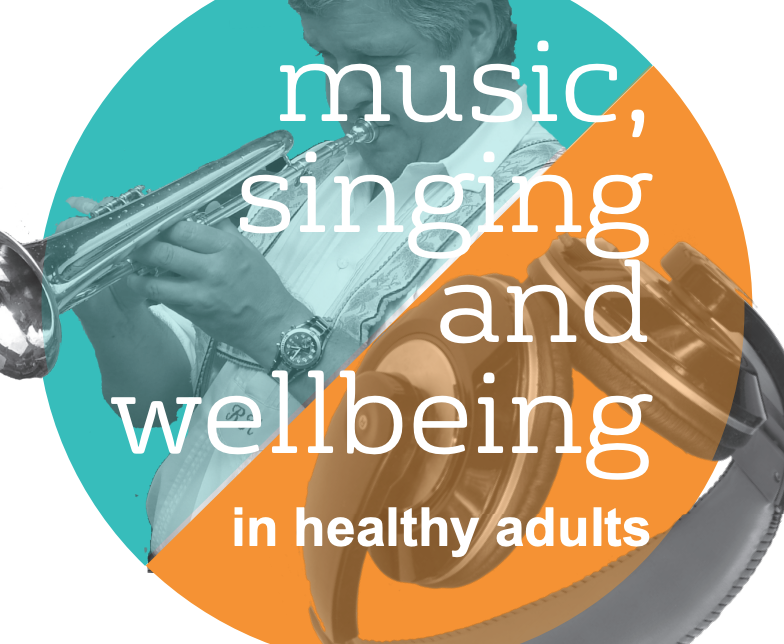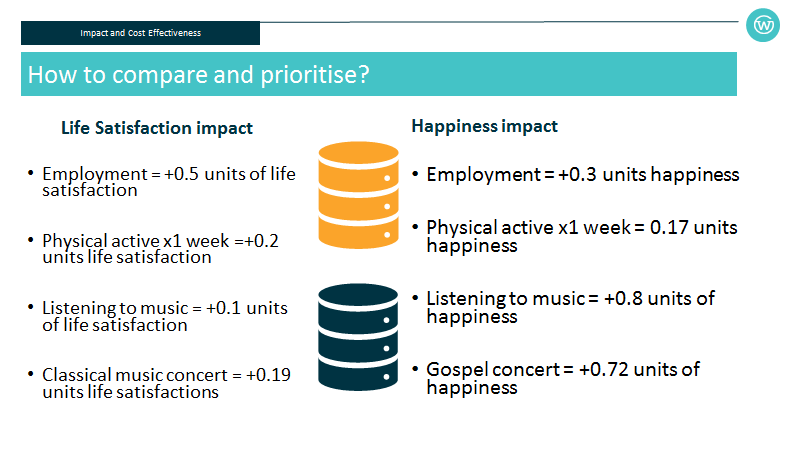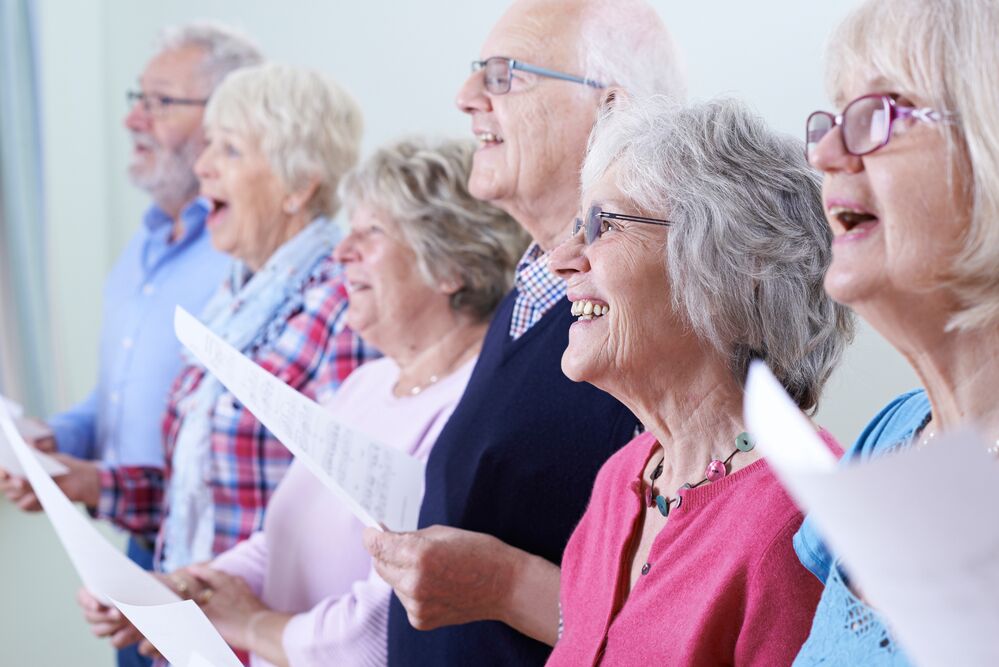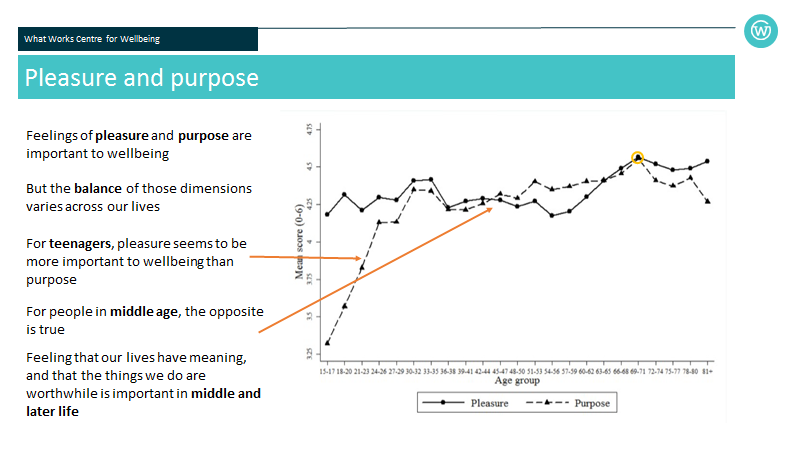What #music and singing interventions work best to improve #wellbeing? We looked at the impact on healthy adults taking part in group singing, listening to music and structured #music projects…
(Long) thread 1/13
https://whatworkswellbeing.org/wp-content/uploads/2020/01/wellbeing-singing-music-briefing-nov20162.pdf">https://whatworkswellbeing.org/wp-conten...
(Long) thread 1/13
https://whatworkswellbeing.org/wp-content/uploads/2020/01/wellbeing-singing-music-briefing-nov20162.pdf">https://whatworkswellbeing.org/wp-conten...
There is strong #evidence on the positive wellbeing effect of music and #singing - attending #music events, performing and listening to music all:
 https://abs.twimg.com/emoji/v2/... draggable="false" alt="🙂" title="Leicht lächelndes Gesicht" aria-label="Emoji: Leicht lächelndes Gesicht">boost mood
https://abs.twimg.com/emoji/v2/... draggable="false" alt="🙂" title="Leicht lächelndes Gesicht" aria-label="Emoji: Leicht lächelndes Gesicht">boost mood
 https://abs.twimg.com/emoji/v2/... draggable="false" alt="🙂" title="Leicht lächelndes Gesicht" aria-label="Emoji: Leicht lächelndes Gesicht">help with finding meaning
https://abs.twimg.com/emoji/v2/... draggable="false" alt="🙂" title="Leicht lächelndes Gesicht" aria-label="Emoji: Leicht lächelndes Gesicht">help with finding meaning
 https://abs.twimg.com/emoji/v2/... draggable="false" alt="🙂" title="Leicht lächelndes Gesicht" aria-label="Emoji: Leicht lächelndes Gesicht">reduce stress and tiredness. 2/13
https://abs.twimg.com/emoji/v2/... draggable="false" alt="🙂" title="Leicht lächelndes Gesicht" aria-label="Emoji: Leicht lächelndes Gesicht">reduce stress and tiredness. 2/13
But being #happy isn& #39;t the only thing that matters. While having a #job has a bigger impact on our overall life #satisfaction, music and singing activities have a bigger impact on our #happiness & #39;in the moment& #39; than being employed. 3/13
We found that there is strong #evidence for an improvement in #wellbeing in three main groups of people… 4/13
1. singing can maintain a sense of #wellbeing in healthy older people, in particular regular group singing, which is good for morale and mental health-related quality of life and can also reduce #loneliness, #anxiety and #depression. @Ageing_Better @age_uk 5/13
Engagement in #music activities can also help older people to connect with their life experiences and be more stimulated. Here& #39;s a great practice example of an initiative that champions #singing in #residential #care settings for older people… 6/13 https://whatworkswellbeing.org/blog/music-singing-and-wellbeing-what-works-new-review-of-evidence/">https://whatworkswellbeing.org/blog/musi...
2. We found that #listening to music can reduce #stress, negative mood and #anxiety. There was particularly strong evidence for listening to music improving the #wellbeing of young adults. Engagement also declines as people get older. 7/13
3. There is strong #evidence that structured music therapy can reduce the intensity of stress, anxiety and depression in #pregnant women. 8/13
Interestingly, #performing music doesn& #39;t have as big an impact on wellbeing. This may reflect working conditions or that it becomes a #job rather than a leisure activity or hobby. 9/13 https://whatworkswellbeing.org/blog/performing-arts-and-wellbeing-what-impact-does-occupational-stress-have-on-classical-musicians/">https://whatworkswellbeing.org/blog/perf...
This all shows there is a strong case for local authorities, trusts and foundations to continue supporting music and singing activities which enhance and maintain #subjective #wellbeing in adults. 10/13
But what works best? How does this compare to other activities? We still need to find out more. Any organisation #funding music and singing projects, can play an important role in developing the #evidence base. 11/13
Depending on what you& #39;re trying to achieve, our methods series can guide you towards which measures you need for which purpose. 12/13 https://whatworkswellbeing.org/category/measuring-wellbeing-series/">https://whatworkswellbeing.org/category/...
With choirs ‘in real life’ now off the agenda for the foreseeable future what has been the wellbeing impact of this? @joannesmithson talks to @Daisy_Fancourt and @CotWChoir in our NEW podcast!
13/13 ends https://whatworkswellbeing.org/blog/virtual-choirs-and-wellbeing-podcast/">https://whatworkswellbeing.org/blog/virt...
13/13 ends https://whatworkswellbeing.org/blog/virtual-choirs-and-wellbeing-podcast/">https://whatworkswellbeing.org/blog/virt...

 Read on Twitter
Read on Twitter





